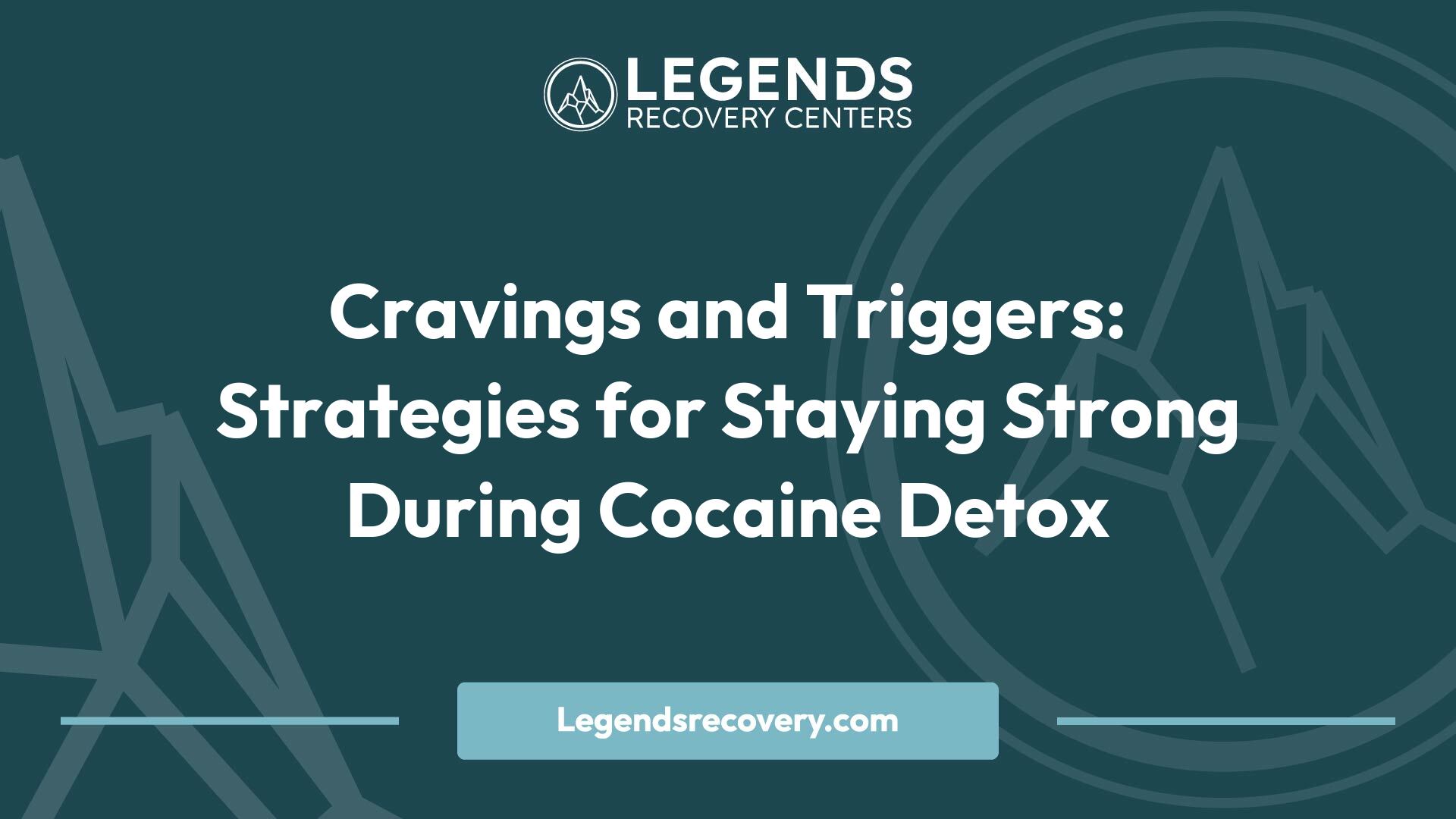Navigate cocaine detox with strategies to combat cravings and triggers. Stay strong with expert tips!

Embarking on the journey of cocaine detox is a critical step towards recovery from cocaine addiction. Understanding the duration and process of detox, as well as the factors influencing its length, is essential for individuals seeking to break free from the grip of cocaine dependency.

Cocaine detoxification typically takes about two weeks to complete, as per insights from Soledad House. The exact duration can vary based on individual factors such as the amount of cocaine used, the length of addiction, and metabolic rates. The process of detoxification involves the body ridding itself of the toxic effects of cocaine, allowing physical and psychological healing to begin.
To manage expectations, it's crucial to recognize that metabolism rates vary among individuals. Some may complete the detox process in a matter of days, while for others, it may extend to several weeks. However, in general, the detox period for cocaine addiction typically spans around two weeks or less.
Several factors come into play when determining the length of a cocaine detox program. These factors, highlighted by the Soledad House, include:
Initiating detox as soon as 24 hours after the last cocaine dose is crucial to begin the process of eliminating the drug from the body. The acute withdrawal symptoms may persist for more than one to two weeks; hence, professional guidance and support during this period are invaluable [2]. Understanding these aspects of cocaine detox sets a foundation for individuals to navigate the challenges and victories that come with the journey towards recovery.
When undergoing cocaine detox, it is crucial to be aware of the withdrawal symptoms that may arise. These symptoms encompass both physical and psychological manifestations, each with varying levels of severity and duration.
Withdrawal symptoms from cocaine detox primarily encompass mental and emotional aspects, as cited by Serenity Grove. Individuals may experience feelings of depression, anxiety, and even suicidal ideation. Other common psychological symptoms include nightmares, restlessness, and slowed cognitive processes. While these symptoms typically start to improve within seven to 10 days, some individuals may continue to experience cravings for a longer period.
On the other hand, physical symptoms during cocaine withdrawal can be less pronounced compared to the psychological effects. However, physical manifestations such as fatigue, increased appetite, and disturbed sleep patterns may also be present. The interplay between physical and psychological symptoms varies based on factors such as frequency of use, dosage, and individual health conditions, as highlighted by Orlando Recovery Center.
The severity of cocaine withdrawal symptoms can significantly differ from person to person and is influenced by various factors. Some individuals may experience intense symptoms such as severe depression, extreme anxiety, panic attacks, and even suicidal thoughts, as mentioned by Serenity Grove. These severe symptoms may require professional support and monitoring to ensure the individual's safety and well-being.
Symptoms of detox and withdrawal from stimulants like cocaine, as noted by Healthline, typically emerge within 24 hours after the last use of the drug. It is essential for individuals undergoing detox to be prepared for these symptoms and to have access to appropriate resources and support systems.
In cases of chronic cocaine use, withdrawal symptoms can be more intense and prolonged, extending into a phase known as protracted withdrawal. Symptoms during this phase, as highlighted by Soledad House, may include persistent depression, heightened anxiety, strong cravings, and prolonged suicidal thoughts. It's critical for individuals in this phase to receive comprehensive care and specialized treatment to manage these challenging symptoms effectively.
Understanding the nature, severity, and duration of withdrawal symptoms is essential for individuals embarking on their journey toward recovery from cocaine addiction. By being informed and prepared, individuals can navigate the detox process with greater resilience and focus on achieving long-term wellness and sobriety.
Navigating the journey of cocaine detox can be challenging, and seeking professional support plays a pivotal role in ensuring a successful recovery. Understanding the benefits of seeking help and the role of detox programs is essential in providing individuals with the necessary guidance and care during this critical phase.
Seeking professional support during cocaine detox is crucial due to the complexity of withdrawal symptoms that can arise from chronic cocaine use. These symptoms may include depression, anxiety, strong cravings, and in severe cases, suicidal thoughts. With the guidance of trained professionals, individuals undergoing detox can receive the medical attention and emotional support needed to navigate through these challenging symptoms safely.
Additionally, professional support offers personalized care tailored to the individual's specific needs. This customized approach addresses not only the physical aspects of detox but also considers the psychological and emotional well-being of the individual. By having a team of experts to lean on, individuals can feel supported and motivated throughout the detox process, increasing their chances of a successful recovery.
Detox programs play a crucial role in the initial phase of cocaine recovery. These programs are designed to provide a structured and supervised environment where individuals can safely withdraw from cocaine while receiving medical monitoring and support. Factors that influence the length of a detox program include age, overall well-being, amount and duration of cocaine use, route of administration, and co-occurring substance use.
Detox programs offer a range of services to support individuals during this challenging period, including medical interventions to manage withdrawal symptoms, psychological support to address cravings and emotional distress, and educational resources to help individuals understand the recovery process. Through a combination of therapies, counseling, and medical supervision, detox programs aim to provide a holistic approach to detoxification, setting the foundation for long-term sobriety.
By recognizing the importance of professional support and engaging in detox programs, individuals can receive the comprehensive care and guidance needed to navigate through the complexities of cocaine detox successfully. These supportive environments not only offer medical assistance but also create a nurturing space for individuals to heal, learn, and build the necessary skills for a sustainable recovery journey.
Navigating cravings and triggers is a crucial aspect of staying strong during cocaine detox. Understanding the nature of cravings and having effective coping strategies in place can significantly impact the detox process and long-term recovery journey.
Cravings during addiction recovery, including cocaine detox, are intense desires or urges to use substances that are deeply ingrained in the brain's reward system. These cravings can be triggered by various factors, such as stress, social situations, or exposure to drug-related cues. It's essential to recognize that cravings are a normal part of the recovery process and can arise even after extended periods of abstinence.
To address cravings effectively, individuals must identify their triggers, which are specific cues or situations that prompt drug cravings. By recognizing and understanding these triggers, individuals can develop personalized strategies to manage and mitigate the urge to use cocaine [5].
Several coping strategies can help individuals navigate cravings during cocaine detox and maintain sobriety:
By incorporating these coping strategies and actively working to understand and manage cravings and triggers, individuals undergoing cocaine detox can enhance their ability to resist urges and maintain progress toward long-term recovery. Building a strong support network, seeking professional guidance, and staying committed to self-care practices are integral components of successfully managing cravings during the detox and recovery process.
Effectively preventing relapse is a critical aspect of the recovery journey, particularly for individuals undergoing cocaine detox. Establishing a robust relapse prevention plan and learning how to identify and address triggers are essential components in maintaining long-term sobriety.
Research suggests that more than 60% of individuals treated for a substance use disorder experience relapse within the first year after treatment, highlighting the necessity of a well-structured relapse prevention strategy. A comprehensive relapse prevention plan typically includes:
By laying out a detailed relapse prevention plan tailored to individual needs and circumstances, individuals undergoing cocaine detox can enhance their likelihood of sustained recovery.
Addictive substances like cocaine trigger intense cravings through complex interactions in various brain regions, underscoring the critical need for recognizing and managing triggers to prevent relapse. Some strategies to identify and address triggers include:
By proactively acknowledging and addressing triggers, individuals in the process of cocaine detox can fortify their resilience against potential relapse, paving the way for sustained recovery and improved well-being.
As individuals navigate the journey of cocaine detox and recovery, adopting long-term strategies is crucial to maintain sobriety and rebuild a healthy lifestyle. Two key components of long-term recovery strategies include mindfulness and meditation, as well as exercise and social support.
Holistic therapies, such as mindfulness and meditation, play a vital role in supporting individuals during the recovery process. These practices, as highlighted by Mountainside, aid in alleviating stress, anxiety, and negative emotions that may trigger substance abuse. By focusing on the present moment and controlling negative thought patterns, mindfulness and meditation help individuals stay grounded, increase self-esteem, and reduce cravings. These practices empower individuals to gain awareness of their thoughts, feelings, and behaviors, contributing to better management of addiction triggers.
To incorporate mindfulness and meditation into daily routines, individuals can explore various techniques such as deep breathing exercises, guided meditation sessions, and mindfulness-based stress reduction practices. By integrating these practices into their lives, individuals can cultivate a sense of calmness, enhance self-awareness, and develop coping mechanisms to navigate cravings and stressful situations.
Engaging in regular exercise and fostering social support are integral components of long-term recovery strategies for individuals overcoming cocaine addiction. According to Mountainside, physical activities play a significant role in reducing cravings by providing a natural and healthy outlet for energy. Exercise releases endorphins, boosts mood, and serves as a stress-reliever, thereby aiding in managing cocaine cravings and maintaining overall well-being.
Additionally, social support plays a crucial role in the recovery journey. Building a network of supportive individuals who understand the challenges of addiction and offer encouragement and guidance can be instrumental in staying on track with sobriety. Through group therapy sessions, support groups, or individual counseling, individuals can connect with others who share similar experiences and create a safe space to discuss challenges, victories, and setbacks.
By prioritizing mindfulness and meditation practices, as well as incorporating regular exercise and nurturing social connections, individuals can enhance their resilience, develop healthy coping mechanisms, and foster a strong foundation for long-term recovery from cocaine addiction. These strategies empower individuals to navigate triggers, manage cravings, and embrace a balanced and fulfilling life free from substance use.
[2]:
[3]:
[4]:
[5]:
[6]:
[7]: